By IWIL Catalyst Team members Amy Kurlansky, Jessica T. Moore, and Jessie Spressart
What activity outside of work replenishes you in an immersive “flow”?
At IWIL’s 2024 Well-Being-Week-in-Law, we gained inspiring insights about activities that people do to disconnect from work, revitalize their energy, stave off burnout, and feed their soul: music, knitting, photo walking, art journaling, travel, writing, and cooking. If you missed any of these sessions, don’t fear: we summarize the takeaways here and give links to session recordings and materials.
You can jump to the session descriptions here:
Music Can Help You Process Your Emotions and Create Connections
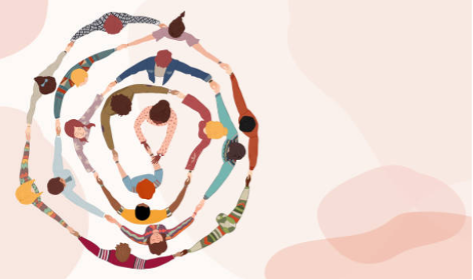
Incorporating the joy and deep satisfaction of music into our lives takes countless forms. In this session (link below), attorneys and well-being professionals Kendra Brodin, Denise Robinson, and Jessica T. Moore share from their extensive music experience.
Ms. Moore, attorney, musician, and music teacher to preschoolers, uses the song Pachamama (sung by Beautiful Chorus) to show how music is “organized sound” that provides a deeply satisfying experience. Music lights up numerous areas in both sides of the brain, including memory and pleasure centers. The enjoyment of music is grounded in physical, biological and mathematical properties. All human societies have song and dance; for most it is communal. As a fundamental and universal phenomenon, music and its many benefits belong to all of us.
Ms. Brodin, pianist/organist and founder of EquireWell, plays a piano piece live and shares how music brings her deeply into focus, presence, and flow. Learning to play new music taps into the growth mindset and enhances intellectual well-being. Community music-making creates group “sound bathing” and social connection (she met her spouse in choir!). Music-making can be a service to others, whether in a faith community or in other places such as care facilities. Regular performing allows for the experience of moving through stress and nervousness in both musical and non-musical areas, bringing reward, satisfaction, and enhanced performance/presentation skills.
Ms. Robinson, a classically trained pianist in her youth, former practicing lawyer, and founder of The Still Center, a DEI and well-being consultancy, demonstrates the importance of the “rest” in music and in life. We do not have infinite energy, and music helps to bring balance through down-regulation of the autonomic nervous system. She finds classical music, bossa nova, instrumental music, and nature sounds to be especially powerful. Music also helps her to reconnect to her African-American roots. Using Beyonce’s Texas Hold ‘Em, and the banjo played in that song by Rhiannon Giddens, she gives an example of the music and instruments with origins in the communities of the African diaspora and their influence on Western music.
Some of the numerous ways to incorporate music into your lives include singing at home (with children and family, or using karaoke tracks), community choir, online or in-person individual and group lessons, spontaneous song-writing, musical theater, virtual choirs, holiday caroling, dance, drum circles, and other rhythm-focused activities. Resources for exploring active music in your lives may be found in local music stores, faith communities, community recreation centers, and many online resources. Be picky when engaging a music teacher!
The final takeaway: don’t underestimate yourself when it comes to music!
Watch Session Now (passcode &BNz7$7q)
Download the materials here.
Knitting

Knitting, along with other crafts like crochet, needlework, and more, has been shown to be a beneficial way to engage one’s mind and hands, leading to all kinds of positive outcomes for mental health and well-being. In this session, link below, Jessie Spressart, Founder and Managing Director of Optia Consulting and Cheryl Solomon, attorney and yarn store owner, engage in a lively discussion about the benefits of their passion.
Jessie shares that she came to knitting during grad school as a way to “not feel bad” about taking a break from her studies by doing something productive. She now knits in the evenings while watching TV, on planes, and during particularly lengthy training videos (it’s a great way to stay attentive while getting your CLEs in!). Cheryl emphasizes that knitting is a helpful way to give your eyes a rest from close-up screens or the intensive reading time that being a lawyer requires.
Both Cheryl and Jessie talk about how knitting—even just a few minutes a day—helps them manage various stresses that arise, whether it’s delayed flights or difficult clients. They agree that it’s an ideal practice for all different levels of skill and intellectual engagement—from straight-forward garter stitch to lace, cables, and colorwork. The sky is the limit!
Knitting (and other fiber arts) is often thought of as a solitary hobby; however, there is a global community of knitters and crocheters. From fiber arts festivals to local store knit nights to peer-led knitting groups, the shared love of the craft is a powerful way to create community and connection with others, which is another important element of well-being.
Be sure to check this session out to see a demo of how to get started, a discussion of lots of resources, and the robust chat where folks share their projects!
Photo Walking

Savoring photos is a key aspect of Noah Bradow’s passion for photowalking. In this session (recorded here), Noah explains that a photo walk is a walk outside for the sole purpose of finding things that interest you and photographing them, without regard to whether other people will like the photographs.
It is all about you and for yourself. Again, if you want to share, that is entirely up to you.
Noah outlines the well-being-boosting benefits of photo walking, which include:
- Being present—being exactly where your feet are
- Being outside, but in community—it is a chance to get outside, see the world (which he notes is especially important to those working from home)
- Physical movement
- Actually seeing the familiar—seeing things and really looking at them, slowing down to be intentional
- Reinforcement that beauty is all around—which is especially important with all the negative rhetoric today
Noah shares that photowalking changes your vision. It impacts how you see the world because you start to notice things differently.
You notice what you notice—your photos start to show if you are drawn to certain things, like if you take a lot of landscape photos, or if you like weird shapes. You may start to notice that you take a lot of photos of certain colors, or if you like balance and order.
It does not take a lot of expensive or fancy equipment to start a photowalking practice—you can get the fancy cameras, or you can use your phone. Noah points out—the best camera is the one you are going to use!
While Noah provides a list of ideas for what you can photograph, you can photograph anything you like—colors, people, nature, or light can be your subject. Whatever catches your eye.
Noah also notes that it is important to create the time, because if you are trying to “find time,” it is not going to happen.
Watch Session Now
Resources, tips, and tricks are available in this printable takeaway.
Art Journaling
 In this session, link below, Kori Carew, an attorney, TEDx speaker, and community builder, takes us on a lively journey through the benefits of art journaling. She shares her work and the why behind this well-being passion of hers.
In this session, link below, Kori Carew, an attorney, TEDx speaker, and community builder, takes us on a lively journey through the benefits of art journaling. She shares her work and the why behind this well-being passion of hers.
Kori hasn’t always thought of herself as an artist; indeed, it wasn’t until her sister-in-law, a potter, encouraged her to think differently that she started to take on that identity. Now, she views being an artist as an expansive, inclusive descriptor that incorporates her work, her love of cooking, and more.
Art journaling is just what it sounds like: creating art in a journal or book, using whatever media you like—collage, words, images, color, paint, ink, crayon, and more… the possibilities are limitless! Kori generously shares lots of her work, inspiring anyone curious about art journaling and not knowing where to start: “The world is your oyster: do whatever you want!” is her sage advice for us.
Kori’s painting and art journaling help her resist perfectionistic tendencies, something that many of us in the legal community grapple with. Painting is a place where she practices imperfection and finds beauty in the imperfection of her work. One of the themes of her talk is “play,” which studies show is integral to enhanced well-being and one of the things we as adults don’t spend enough time doing.
Be sure to check this session out (passcode: #E9SJi9c) to see what Kori keeps in her to-go artist’s bag (complete with advice on what TSA allows on planes!). You’ll also get lots of tips on materials and how to get started with art journaling and exploring your creativity. More resources may be found here.
Travel/Vacation

In their IWIL Well-Being Week in Law session, Matt Potempa and Chahira Solh share their very different styles for planning and implementing a trip or vacation. While Chahira enjoys the planning aspects of travel—where she would like to visit, and when, Matt prefers the surprise and not knowing what to expect on a trip. If someone (else) wants to make the reservations and ensure there are tickets for events or sightseeing, that is more his style. Matt recommends using a travel agent – his is great at helping him plan bucket list vacations and how to budget for them.
Chahira is her own “travel agent”; she likes to know what all of her options are and does a lot of research in the planning stages. As Anne Bradford notes, there is joy in the planning phase of a trip, as research shows that anticipatory savoring in travel raises well-being.
Both travelers explain that it helps to be flexible and have a great attitude while traveling—you would hate to have a trip ruined due to jet lag exhaustion, or plans going awry. Plan for the best but be ready for anything to happen! It is important to be resilient, adaptive, and open to new experiences. It is also important to be kind and accommodating with yourself and your fellow travelers.
Matt and Chahira also talk about the intentionality of their travel plans and vacations.
If you are not able to get everything done on your trip, it gives you an opportunity to return, because it is important not to let travel become a major stressor in your life.
Anne shares that research shows that the well-being benefits of travel last about a week, but, you can extend the benefits by taking photographs and savoring them. You can savor the photos when you look back on them, or when you choose to share them with friends, or if you decide to post them on social media.
More wonderful tips and resources from this session are in this printable takeaway. Where will you travel next?
Writing

In her session on writing, Kelli Dunaway shares her passion for novel writing, how she fits it into her busy life, and tips and tools. She talks about her journaling practice and facilitates a brief writing activity.
Kelli discusses how finding time to write is a challenge; in addition to working on her third novel, she is also a working mom.
While her dream is to retire at the beach as a published author, she highlights that as a writer, she has three keys: process, boundaries, and facing rejection.
Kelli shares that while every writer has their own process, it takes a process to write. It is important to her to make time for her writing, and for her, it is first thing in the morning. After her early morning meditation, she gets into the “zone.”
To make her writing time successful, Kelli sets boundaries around it and sets a schedule that works for her. While she said most writers advise writing a little every day, Kelli finds that three-hour blocks, four days a week, are her ideal time frame.
It takes her 8-12 weeks to finish a novel. She lets it rest for another 30 days before her first and second rounds of editing. Once she is satisfied with her novel, she sends queries to agents.
And braces for the rejection.
Kelly acknowledges that as long as she is sending out query letters to agents, the rejections are non-stop. And, while self publishing is great for some, she prefers the traditional publication route. She says she has an ally who reminds her that (even) JK Rowling was rejected fifty times before an agent accepted Harry Potter.
Kelli urges that boundaries are absolutely necessary to protect her writing time. Every week, she blocks off her time and guards it preciously for writing and creative projects.
You see her full session here, and print out helpful materials here.
Cooking

Many of us put cooking on the back burner, perceiving a lack of time, energy, and know-how. Lucky for us, Drew Collins, talent management professional, coach and thought leader, shares his journey into cooking and how it connects to well-being by, among other things, creating a nurturing, inviting, and immersive escape.
Mr. Collins walks us through seven tips & tricks to get cookin’! He discusses the crafting of comforting cooking spaces and how to set aside appropriate time. Cooking lends itself to multi-tasking with podcasts and other activities, bringing an added layer of satisfaction. He suggests “Go-To Days”: a day of the week for which a particular meal or theme always applies. He also shares the secrets to making it all manageable: keeping it simple, taking shortcuts, and optimizing through prep and pre-prep.
During his thirty-minute session, which you may view here, Mr. Collins provides us with starter-lists for Perfect Tools and the Perfect Pantry. He tells us which pots and pans, utensils, knives, appliances, and other essentials lend a strong foundation. For the pantry, he shares insights into the basics of oils & vinegars, grains, spices, baker’s items, and other odds & ends. The tools and pantry lists may be found here, along with other resources.
Let’s get cooking!
We hope that participating in these passion programs will inspire you to keep making time for your own passions and find some new ones!
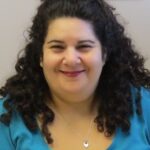 Amy L. Kurlansky, has served as the Reference Librarian at the Hamilton County Law Library since March 2018.
Amy L. Kurlansky, has served as the Reference Librarian at the Hamilton County Law Library since March 2018.
Prior to joining the Law Library, Ms. Kurlansky, worked as an Attorney at Pro Seniors, Inc., as a GAL for abused children in the foster care system, and as a Child Support Administrative Hearing Officer.
As a Staff Attorney for Pro Seniors, Inc., Ms. Kurlansky presented on the topics of Medicaid and Elder Abuse to community groups, social workers, and other attorneys. Ms. Kurlansky also collaborated on the 2014 OSBA Elder Law Handbook chapters on Medicaid and Elder Abuse.
Ms. Kurlansky belongs to the Ohio State Bar Association and the Cincinnati Bar Association. Ms. Kurlansky is a graduate of the CBA CALL (Cincinnati Academy of Leadership for Lawyers) Program. She serves as an appointed member of the CBA Admissions Committee, and as the Chair of the CBA Health and Well Being Committee. She also participates in the Legal Research & Information Resources Committee, the VOICE committee, Lawyers Connecting Beyond the Law, and is a former chair of CBA Elder Law Committee. Ms. Kurlansky is a member of the American Association of Law Librarians, the Ohio Regional Association of Law Librarians, and served as the immediate past chair of the Ohio Regional Association of Law Librarians County Law Library Special Interest Group. Ms. Kurlansky serves on the IWIL Catalyst committee.
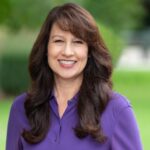 Jessica T. Moore is certified as a Corporate Wellness Specialist and in Social-Emotional Learning, and has completed the Mindfulness Based Stress Reduction program at the UCSF Osher Center for Integrative Medicine. She is an active volunteer with the Institute for Well-Being in Law (IWIL), a national non-profit dedicated to changing the culture of the legal industry’s approach to well-being. Currently she chairs IWIL’s Catalyst Team and serves on the Communications Committee.
Jessica T. Moore is certified as a Corporate Wellness Specialist and in Social-Emotional Learning, and has completed the Mindfulness Based Stress Reduction program at the UCSF Osher Center for Integrative Medicine. She is an active volunteer with the Institute for Well-Being in Law (IWIL), a national non-profit dedicated to changing the culture of the legal industry’s approach to well-being. Currently she chairs IWIL’s Catalyst Team and serves on the Communications Committee.
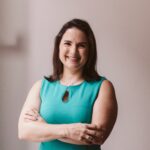 Jessie is Managing Director of Optia Consulting. Optia provides consulting and training on management and leadership skills, and mental health and well-being in the workplace.
Jessie is Managing Director of Optia Consulting. Optia provides consulting and training on management and leadership skills, and mental health and well-being in the workplace.
Jessie brings over eighteen years of experience in law firm professional development to her coaching and consulting practice. Prior to founding Optia, Jessie spent over a decade building the professional development department at a law firm in Washington DC.
Jessie is a certified instructor for Mental Health First Aid, is an ICF-accredited executive coach and holds Master’s degrees from Fordham University and St. Andrews University.
